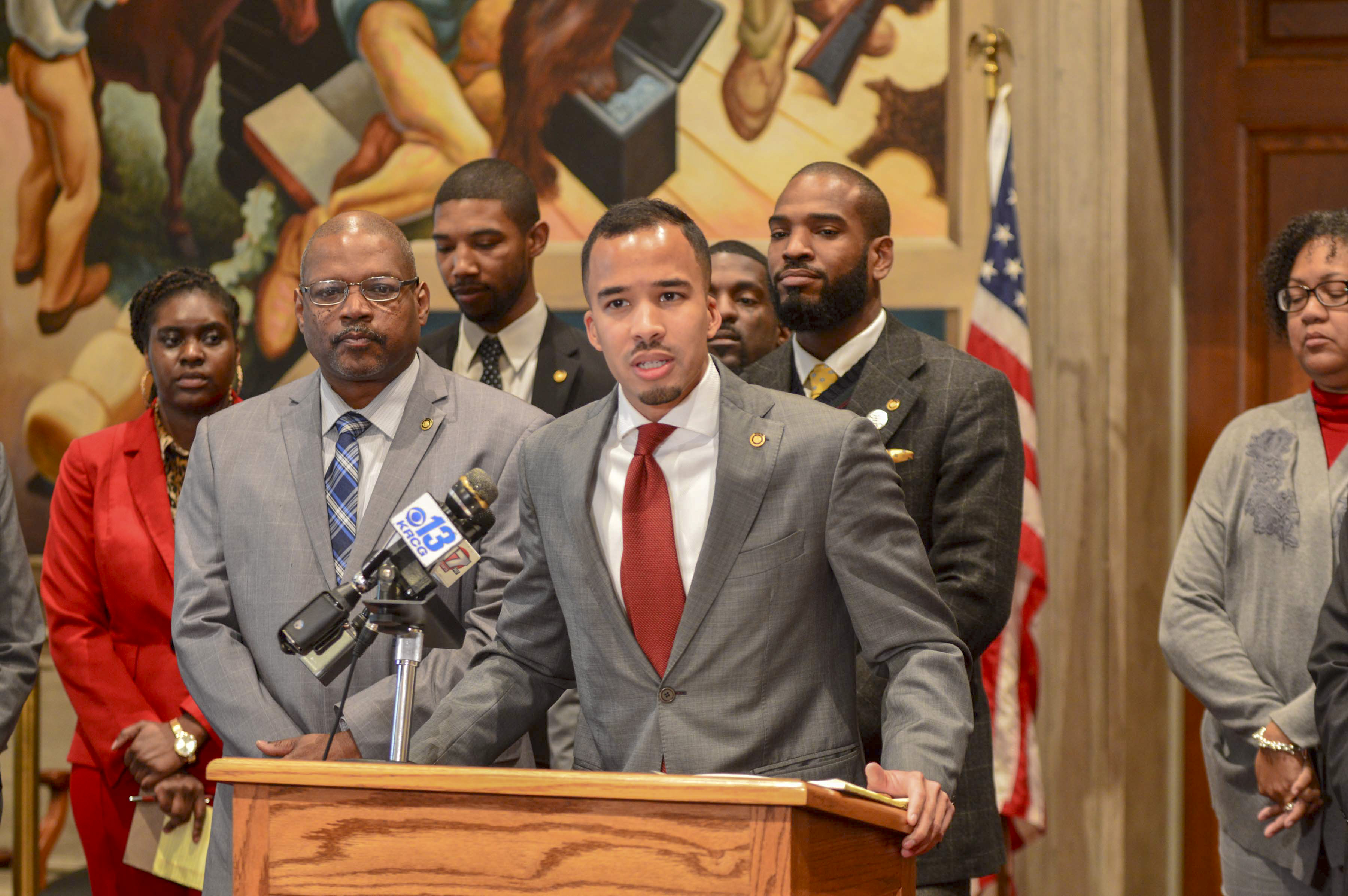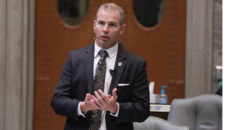JEFFERSON CITY, Mo. — The Missouri House Democratic Caucus partnered with the Legislative Black Caucus to put forth a comprehensive plan to overhaul the criminal justice system.
On Monday afternoon, the lawmakers outlined the filed legislation they tout as correcting practices that disparately punish the poor, removing obstacles that make it harder for people who’ve served their time to become productive citizens, and ensuring the rights of children are protected in legal proceedings.
The bills include changes to the bail system, fees imposed on indigent defendants, voting rights of those on probation or parole, minors waiving their right to counsel, restitution to those wrongfully convicted, and expungements of past convictions.
“Maintaining a strong criminal justice system means addressing its weaknesses,” said House Minority Leader Crystal Quade. “If we truly want to address crime in our state, we must end counterproductive practices that come down harder on poor defendants and make it more difficult for past offenders to find jobs and contribute to society.”
Two of the measures have already been referred to the committee.
Rep. Bruce Franks’ HB 508, which has been referred to the House Elections and Elected Officials Committee, addressed voting rights of those on probation or parole.
Under existing law, individuals convicted of a felony are unable to vote until they have completed probation or parole. Under the proposal, convicted felons would have their voting rights restored once released from prison — even if they remain on probation or parole.
“Excluding people from the duties and obligations of citizenship won’t make them better citizens,” Franks said. “If we want to fully integrate former inmates back into society, their voting rights should be restored upon release.”
Rep. Ingrid Burnett’s HB 42, which has been referred to House Children and Families Committee, aims to protect children in legal proceedings.
The proposed legislation would prohibit a child from waiving their right to legal counsel unless the waiver is made in open court and in writing and the judge has determined the waiver was made knowingly, intelligently, and voluntarily.
“Simply put, children are children,” Burnett said. “We don’t allow them to sign legal documents such as contracts or deeds, and we shouldn’t permit them to sign away their constitutional rights. Having a defense attorney is critical to fairness, accuracy and identifying alternative solutions that lead to better outcomes, not only for the juvenile, but also for the state.”
HB 666, filed by Legislative Black Caucus Chairman Rep. Steve Roberts, would codify many of the reforms being implemented by the court. The measure falls in line with many of the new rules announced by Missouri Supreme Court Chief Justice Zel Fischer.
The Money Bail Reform Act of 2019 aims to avoid jailing people awaiting trial who are neither a danger to the public nor a flight risk, but are simply too poor to afford cash bail.
“We shouldn’t lock up people for being poor. Not only is it unjust, but it also produces a cascade of negative effects when people who haven’t yet been convicted of anything lose their jobs or homes because they can’t afford bail,” said Roberts. “I’m encouraged the Supreme Court is embracing reform, and the legislature can build on the court’s efforts by passing this legislation.”
A measure proposed by Rep. LaKeySha Bosley would double the amount of restitution the state can pay to someone who has been exonerated by DNA testing of a crime for which they were convicted. HB 692 would keep the yearly cap in place, at the same level, but increase restitution for those wrongly convicted from $50 to $100 for every day spent behind bars.
HB 415, proposed by Rep. Alan Gray, would allow the court to require community service of an indigent defendant who has an insufficient income to cover fees or court costs. The legislation would only apply to cases involving traffic infractions, local ordinance violations, or class D misdemeanors.
Rep. Barbara Washington is proposing that records of those convicted of possessing 35 grams of marijuana or less be expungeable. HB 292 goes further than an expungement bill recently heard in committee and does not require the individual seeking a clean slate to have obtain a medical marijuana card.
Helping former inmates find employment upon release is also the goal of HB 153, according to sponsor Rep. Brandon Ellington. The bill would require the Missouri Department of Corrections to participate in the Federal Bonding Program so that all working inmates are bonded prior to release and also assist inmates who have completed the necessary requirements to receive certification in a particular field.
“One of the greatest barriers for ex-offenders is finding stable employment,” Ellington said. “By granting certification and bonding to those who qualify, we expect to see a decrease in the recidivism rate.”














